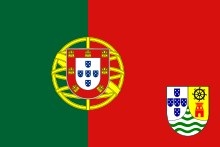Language/Indo-portuguese/Vocabulary/Health
Hi Indo-Portuguese learners! 😊
In this lesson, we will focus on health-related vocabulary in Indo-Portuguese. Knowing these terms can be useful when communicating with health professionals or discussing health concerns with native speakers. Additionally, we will explore some cultural information and interesting facts related to health in the Indo-Portuguese community.
Consider broadening your understanding by checking out these related lessons: Geography & Food.
Basic Health Vocabulary[edit | edit source]
Let's start with some essential terms that you may need when talking about health in Indo-Portuguese.
| Indo-Portuguese | Pronunciation | English |
|---|---|---|
| Saúde | sa-oo-duh | Health |
| Médico | meh-dee-koo | Doctor |
| Enfermeira | en-fer-mei-ra | Nurse |
| Hospital | hos-pee-tal | Hospital |
| Remédio | heh-meh-joo | Medicine |
| Dor | dohr | Pain |
| Ferida | feh-ree-da | Wound |
| Gripe | gri-peh | Flu |
Symptoms[edit | edit source]
When you visit a doctor or a health professional, you might need to describe your symptoms. Here are some words that can help you do so:
| Indo-Portuguese | Pronunciation | English |
|---|---|---|
| Dor de cabeça | dohr di ca-beh-sa | Headache |
| Enjôo | en-jóo | Nausea |
| Febre | feh-bri | Fever |
| Tosse | toseh | Cough |
| Espirro | eh-speh-rro | Sneeze |
| Dor de garganta | dohr di gar-gan-ta | Sore throat |
Here's a dialogue to help you see these words in context:
- Person 1: Estou com dor de cabeça. (I have a headache.)
- Person 2: Tome um remédio para dor. (Take a painkiller.)
- Person 1: Além da dor de cabeça, estou com enjôo. (Besides the headache, I feel nauseous.)
- Person 2: Pode ser sintoma de gripes ou de alguma outra doença. (It could be a symptom of the flu or some other illness.)
Medical Conditions[edit | edit source]
These are some common medical conditions or illnesses that you might need to know in Indo-Portuguese:
| Indo-Portuguese | Pronunciation | English |
|---|---|---|
| Asma | ahs-ma | Asthma |
| Diabetes | dee-a-beh-tis | Diabetes |
| Hipertensão | ee-per-ten-são | Hypertension |
| Infarto | een-far-toh | Heart attack |
Here's a dialogue to help you see these words in context:
- Person 1: Minha mãe tem diabetes. (My mother has diabetes.)
- Person 2: Ela precisa tomar remédios e fazer dieta. (She needs to take medication and follow a diet.)
- Person 1: Meu pai sofreu um infarto. (My father had a heart attack.)
- Person 2: Que perigo! Ele precisa de cuidados médicos imediatos. (How dangerous! He needs immediate medical care.)
Traditional Medicine[edit | edit source]
In some Indo-Portuguese communities, traditional medicine is still widely used. These practices incorporate natural remedies and healing techniques that have been passed down through generations. Here are some words that are used in traditional medicine:
| Indo-Portuguese | Pronunciation | English |
|---|---|---|
| Chá | sha | Tea |
| Ervas | er-vas | Herbs |
| Massagem | mah-sa-jem | Massage |
| Acupuntura | a-cu-pun-tu-ra | Acupuncture |
Here's a dialogue to help you see these words in context:
- Person 1: Minha avó adora fazer chás com ervas. (My grandmother loves making herbal teas.)
- Person 2: Isso ajuda a mantê-la saudável. (That helps keep her healthy.)
- Person 1: Fui para uma sessão de acupuntura. (I went for an acupuncture session.)
- Person 2: E como se sentiu depois disso? (And how did you feel after that?)
Cultural Information and Interesting Facts[edit | edit source]
In India, Ayurveda is an ancient system of medicine that uses natural remedies and herbs to treat various illnesses. It is still practiced today and has gained popularity worldwide for its holistic approach to health and wellbeing.
In the Portuguese language, health-related words are usually masculine. For example, the word for "disease" (Doença) is masculine, and the word for "symptom" (Sintoma) is also masculine.
Did you know that Goa, a former Portuguese colony in India, has a unique blend of Indian and Portuguese culture? Goa is famous for its beaches and distinctive cuisine, which incorporates local spices and seafood with Portuguese influences.
To improve your Indo-Portuguese Vocabulary, you can also use the Polyglot Club website. Find native speakers and ask them any questions!
➡ If you have any questions, please ask them in the comments section below.
➡ Feel free to edit this wiki page if you think it can be improved. 😎

